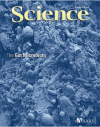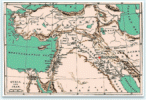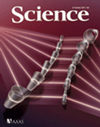 Europe’s next elite research centers could be built in the poor regions in the south and east of the continent but managed by prestigious research institutions in, say, the United Kingdom, Germany, or Sweden. That’s one of several ideas now under discussion in the European Parliament to bolster research and innovation in areas where they haven’t thrived, in hopes of accelerating economic development. Continue reading Europe mulls plans to boost research in poorer regions
Europe’s next elite research centers could be built in the poor regions in the south and east of the continent but managed by prestigious research institutions in, say, the United Kingdom, Germany, or Sweden. That’s one of several ideas now under discussion in the European Parliament to bolster research and innovation in areas where they haven’t thrived, in hopes of accelerating economic development. Continue reading Europe mulls plans to boost research in poorer regions
Category Archives: Science Magazine
Carbon Sampling Takes Flight
 Last month, aerial photographer and biologist Matevž Lenarčič flew a single-seat airplane across 2000 kilometers of airspace between Easter Island and Totegegie Airport in French Polynesia (right). That lonesome leg was one hop on a 3-month journey around the world, during which Lenarčič and his tiny, lightweight aircraft, a Pipistrel Virus (inset), also touched down on Antarctica, a rare solo feat. Between piloting the plane and collecting photographs for an upcoming book on water, Lenarčič has also collected data on black carbon, or soot, concentrations in the atmosphere. His 290-kilogram plane carries a much-lighter-than-normal Aethalometer, designed by aerosol scientist Griša Močnik of Aerosol in Ljubljana, Slovenia, that measures the optical absorption of the atmosphere and converts it to a rough estimate of soot concentration. Continue reading Carbon Sampling Takes Flight
Last month, aerial photographer and biologist Matevž Lenarčič flew a single-seat airplane across 2000 kilometers of airspace between Easter Island and Totegegie Airport in French Polynesia (right). That lonesome leg was one hop on a 3-month journey around the world, during which Lenarčič and his tiny, lightweight aircraft, a Pipistrel Virus (inset), also touched down on Antarctica, a rare solo feat. Between piloting the plane and collecting photographs for an upcoming book on water, Lenarčič has also collected data on black carbon, or soot, concentrations in the atmosphere. His 290-kilogram plane carries a much-lighter-than-normal Aethalometer, designed by aerosol scientist Griša Močnik of Aerosol in Ljubljana, Slovenia, that measures the optical absorption of the atmosphere and converts it to a rough estimate of soot concentration. Continue reading Carbon Sampling Takes Flight
A Cold July in Baghdad
 Researchers in Spain are tapping a new database in their search for historic climate patterns: medieval Arab history. Physicist Fernando Domínguez-Castro of the University of Extremadura in Badajoz, Spain, and his colleagues, including a historian of Arab culture, examined references to droughts, floods, and hail in ten Arab sources written between 816 C.E. and 1009 C.E.. One text told of nights during a Baghdad summer that were so cold that residents bundled up inside their homes rather than sleeping on roofs as was the custom, the team reported in Weather. Continue reading A Cold July in Baghdad
Researchers in Spain are tapping a new database in their search for historic climate patterns: medieval Arab history. Physicist Fernando Domínguez-Castro of the University of Extremadura in Badajoz, Spain, and his colleagues, including a historian of Arab culture, examined references to droughts, floods, and hail in ten Arab sources written between 816 C.E. and 1009 C.E.. One text told of nights during a Baghdad summer that were so cold that residents bundled up inside their homes rather than sleeping on roofs as was the custom, the team reported in Weather. Continue reading A Cold July in Baghdad
The Story Is Dead. Long Live the Story.
 Artist and self-styled experimental philosopher Jonathon Keats is hoping to persuade the art world to join scientists in the Copernican Revolution—nearly 5 centuries late. In 1543, Nicolaus Copernicus made the humbling observation that the Earth revolves around the sun. Modern physicists often cite the “Copernican principle” that, as nature’s rules are the same everywhere, the human viewpoint isn’t unique. Continue reading The Story Is Dead. Long Live the Story.
Artist and self-styled experimental philosopher Jonathon Keats is hoping to persuade the art world to join scientists in the Copernican Revolution—nearly 5 centuries late. In 1543, Nicolaus Copernicus made the humbling observation that the Earth revolves around the sun. Modern physicists often cite the “Copernican principle” that, as nature’s rules are the same everywhere, the human viewpoint isn’t unique. Continue reading The Story Is Dead. Long Live the Story.